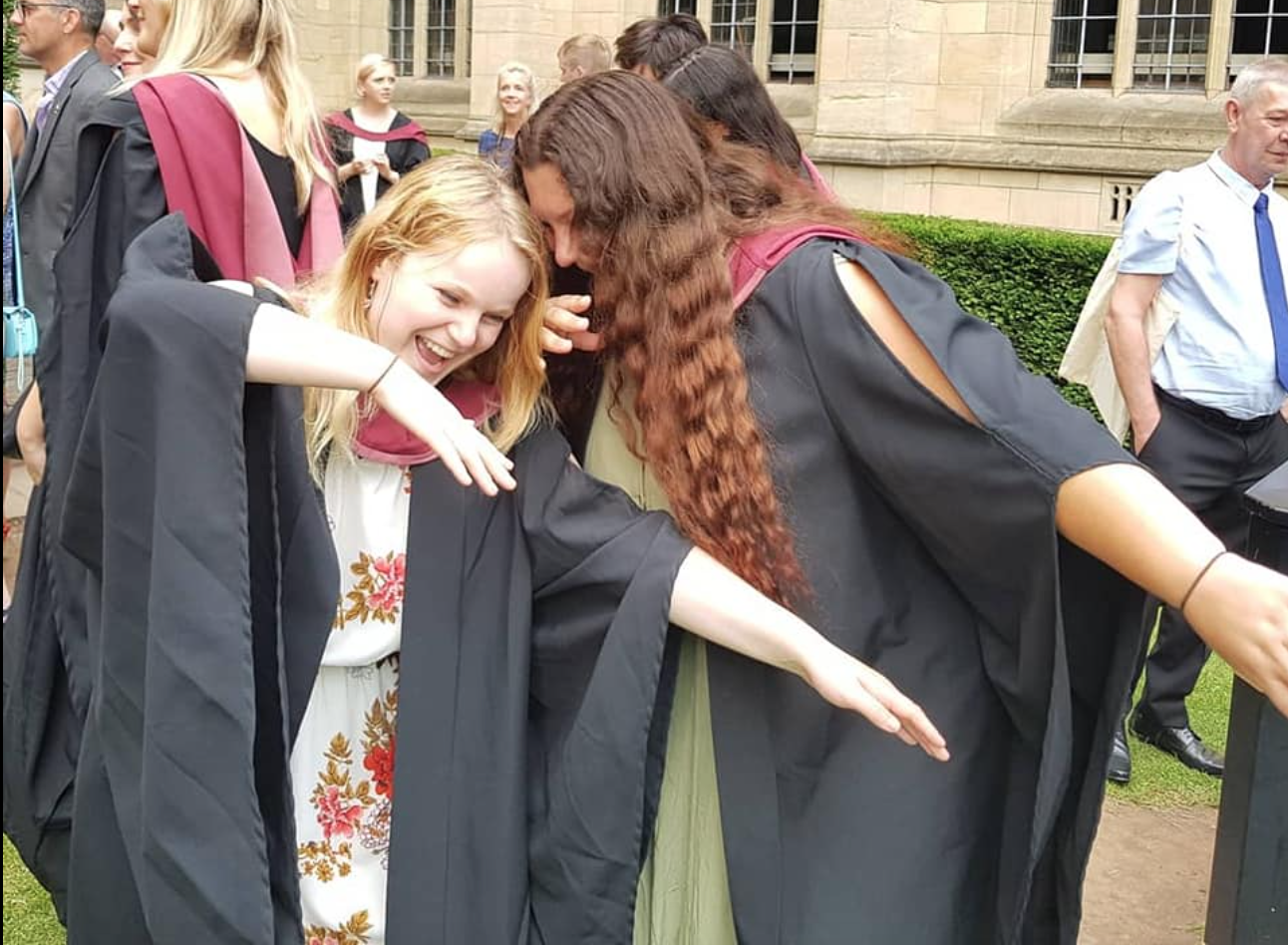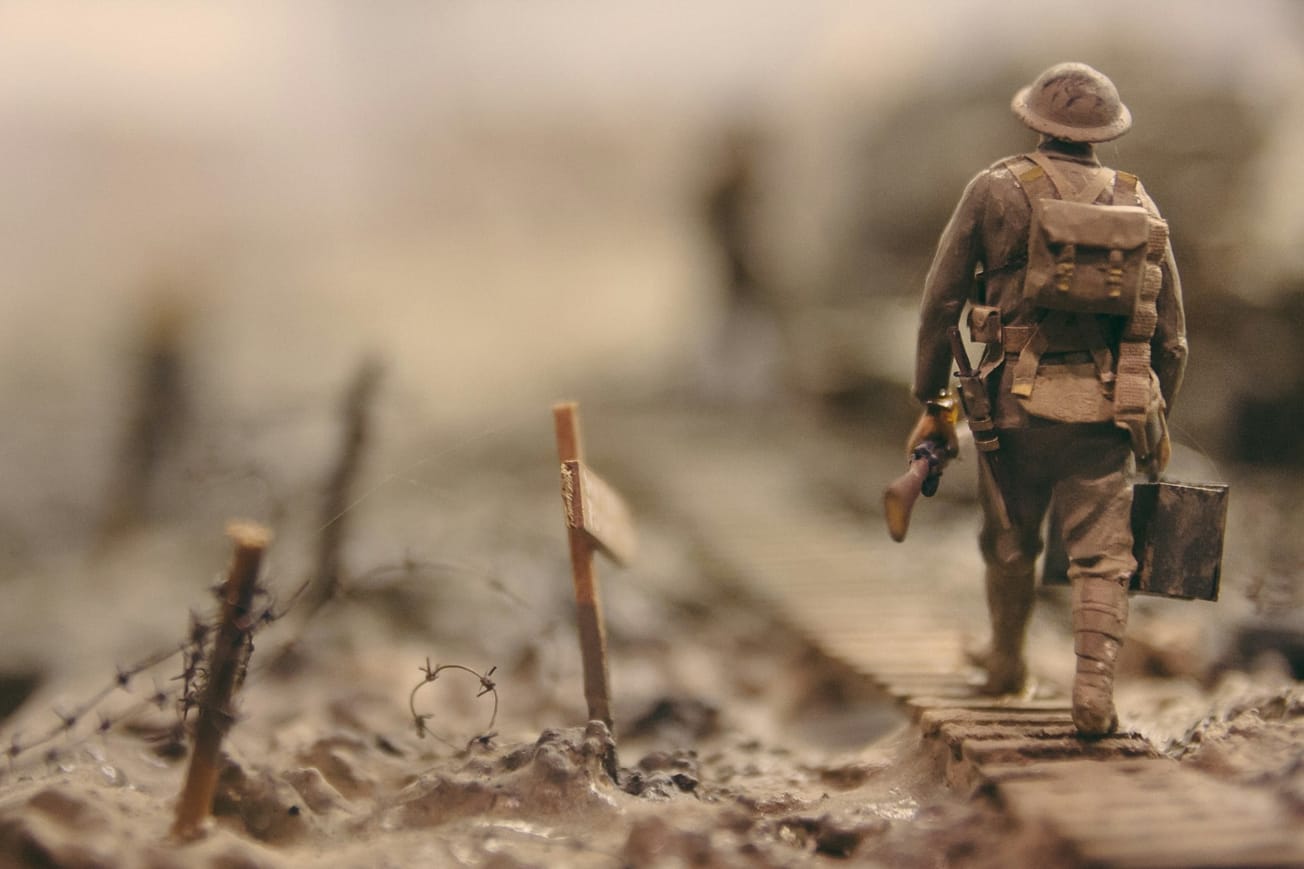By, Callum Ruddock, Third Year, Politics and IR
Callum Ruddock examines what the Covid crisis means for graduates. The job market will shrink as belts tighten; the value of degrees will be bought into question. And yet, students mustn’t despair. They need only cling to their dreams (circumstances permitting) and fight for the things they desire.

We should bemoan the loss of stability and mourn halted careers though mustn’t abandon our hopes, for they will keep us sane. As we clean the wound and patch up the injury, we await the day when we remove the bandages and examine the scar. Will that scar run deep? Will it divide the tendrils of our nation and seed hidden trauma? Or will the outcome be more positive? What comes next often remains to be seen.
Day twelve in captivity and my mind begins to enter a slow decay. I worry about the future perhaps because there isn’t much else to do. My isolation has led to wild patriotism (much to my friends’ exasperation), my conscious grasping for tangible reality, as I bark on about ‘doing our bit’ and how it is ‘our civic duty to remain calm at home’.
Only last week I cried out in turmoil. ‘I have lost the pulse of the nation’ I exclaimed. My understanding of how to fix it all jeopardised when citizens’ priorities changed. Who cares about the quality transport infrastructure when faced with a travel ban.
“What should we change then” I remark? Everything!
If the future means more social distancing, it is not sustainable to keep students physically apart from their education and something will have to be done about it. Our academic institutions are built of brick and mortar, not wire and data. They will have to adapt to teaching from afar and we will have to adapt to learning across cyberspace. Funding models will have to be adjusted accordingly as many graduates call for reimbursement following a seemingly endless period of strike and crisis.
The ceremonies, due to be held between 17th and 24th July will be postponedhttps://t.co/9HFoEoCWDs
— Epigram (@EpigramPaper) March 31, 2020
The Open University has shown that education doesn’t have to look like lectures and libraries. Distance learning is offered as an adequate counterpart to normative education and great strides have been made since the 90s in providing students with more than just books and tutorials. Clearly education (and students) are receptive to change. It’s just how much they can tolerate at once.
I personally struggle with the notion of online education to the extent that even as the ‘fear of missing out’ becomes an old joke, my dissertation lies stagnant and untouched, corrupting slowly on some far-off Word file. I am not convinced students starting in September will want to enjoy freshers from the comfort of their own home. For graduates at least it means a potential delay to postgraduate plans.
Many graduates have been robbed of their graduation. Clouded by a sense of injustice our cohort feels it should be somewhere else, with someone different, doing something interesting. Turbulent economic protraction means poverty but it also means opportunities. I’m sure some graduates will start budding and fresh new companies.
In some Ivy League dorm room (more likely in their sitting room), the next Mark Zuckerberg or Indra Nooyi is undoubtedly working hard to make the best of tough circumstances.
The post crisis period will offer us a new politics. A few will act. Student activists finally have a moment to rise from the ashes; their progressive ideas (based in all ideologies) will ripen. As voting demographics shift and once unspeakable ideas start to sound reasonable, the mixed bucket of contemporary politics overflows with potential new rhetoric.
Such dizzying possibilities excite. Where once I cried out in pain, I see new space for my ideas. Unspeakable things like universal basic income, which if spoken about a mere month ago would be met with sighs, seems relevant and plausible. We can abandon the factionalism of the recent past pushing to find policy answers for the global challenges we all face. Whilst older generations love to remind us of how outspoken us young’un’s are, they forget our democratic landscape lacks young faces.
As for our degrees, there now needs to be a real discussion about their value. I have previously written that such conversation was unnecessary and unneeded, though I’m seriously considering putting ‘victim of corona’ on my CV. They remain in that awful middle space where they no longer guarantee employment but equally aren’t destined to offer education for education’s sake. A degree in politics has gone some way to equip me with the tools needed to make navigate the new political world, but I worry about students entering careers in fields where opportunism, and for good reason, is shunned. There will always be opportunities for Bristol students, our Alumni network is vast; and if this fiasco has taught us one thing; it’s to rely on communities.
Student activists finally have a moment to rise from the ashes
Hidden away at home I’m disconnected. I avoid the news and haven’t given much thought to graduates who will lose loved ones. It’s awful. There must be a tonic. Because if not, the start of my career will consist mainly of dreaming about the past.
Growing up in Oxford and my proximity to the University there has taught me about the importance of dreams. The Oxbridge scholarly body is convinced of its exceptionalism. Students take huge leaps of faith as they start businesses, found charities, and undertake outlandish schemes. This rugged outlook is true of many of the world’s best schools. I know for certain many at Bristol do the same, but I would like to see more of us give it ago. And when we do – shout about it louder.

In some Ivy League dorm room (more likely in their sitting room), the next Mark Zuckerberg or Indra Nooyi is undoubtedly working hard to make the best of tough circumstances. I urge Bristol students to be brave. Your dreams for what was meant to come after college remain your golden ticket. Go boldly and use them to keep you sane. Don’t mire in the realities of it all like I am.
I want to be a travel journalist. I want to write big things about the world. I know this will have to be put on hold while I take a job elsewhere and fly the nest to pastures unseen. To our parents this all seems normal.
“Your generation is so idealistic”
“I had to work in an orange juice factory when I graduated”
In argument I am accused, I have demanded for myself the one thing my parents never got - A satisfying dive into career of my choosing. I carefully explain the reason why I remain so romantic; I have seen in them the outcome of dissatisfaction.
Alas I will have to be adaptable as I stare out of my bedroom window and hope that one day I will joke, “gosh strange days indeed”.
Watch this space …









